Indigene and Sayantan Sarkar's Lakme Fashion Week collections promise to keep us warm in style.
Complete coverage of Lakme Fashion Week Winter/Festive 2017
Indigene by Ruchi Tripathi and Jaya Bhatt
Photographs: Hitesh Harisinghani/Rediff.com
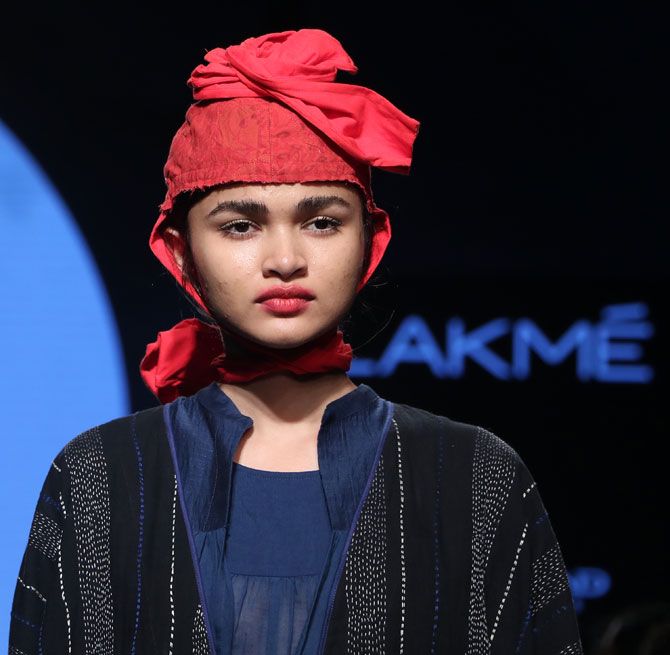
For their latest collection, the Indigence designers opted for a mix of traditional and western silhouettes.
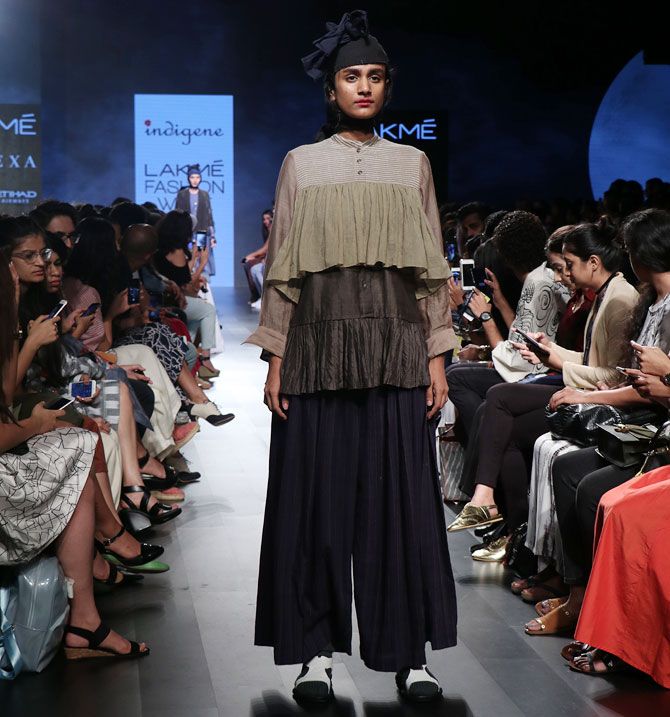
They skillfully played with pleats and layers in dresses, skirts drop-shoulder coats, floppy wide pants and the Gujarati kedia inspired tops.
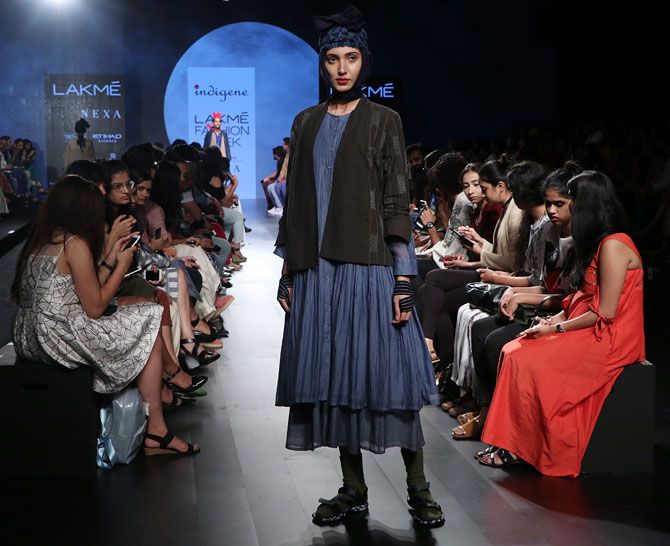
The fabric list included Khadi silk, cotton and Chanderi, which the designers not only 'turned into fluid, easy, relaxed, unconventional, silhouettes', but also 'used in blends or as, patched accents'.
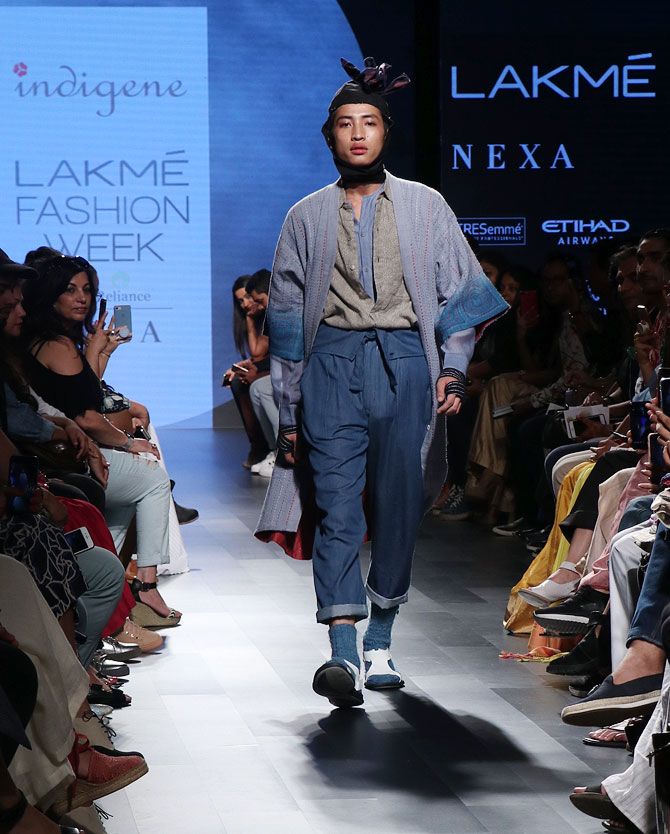
Indigence also launched their men's wear line with ensembles that stayed true to the brand's identity and ethos. The shirts, pants and stylish jackets were hand crafted with artisanal fabrics.
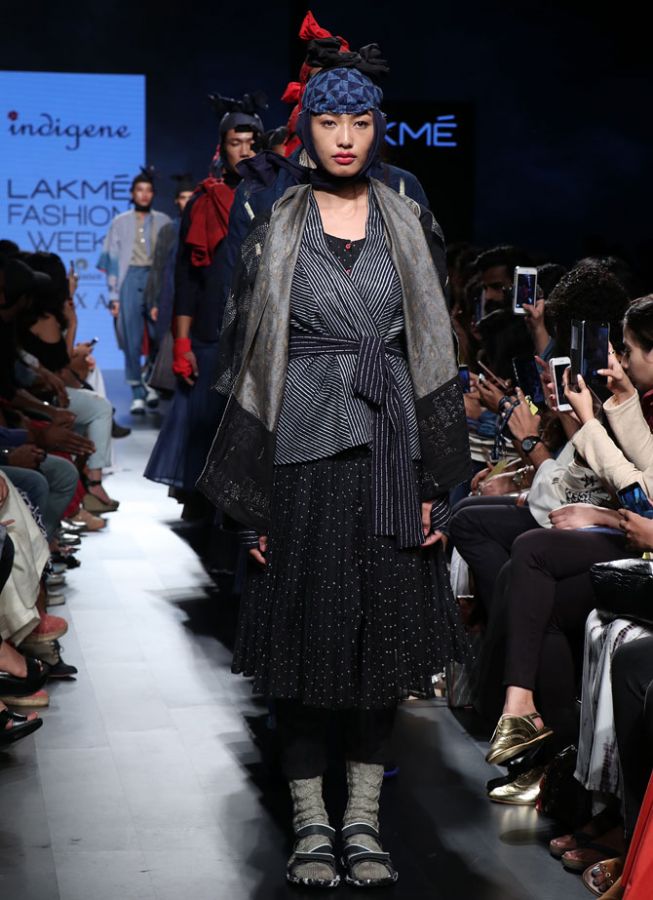
Indigene added to their fashion story with fine Sujni hand embroidery, quilting and fabric texturing and completed the line with quirky skull caps, scarves and thick woollen socks.
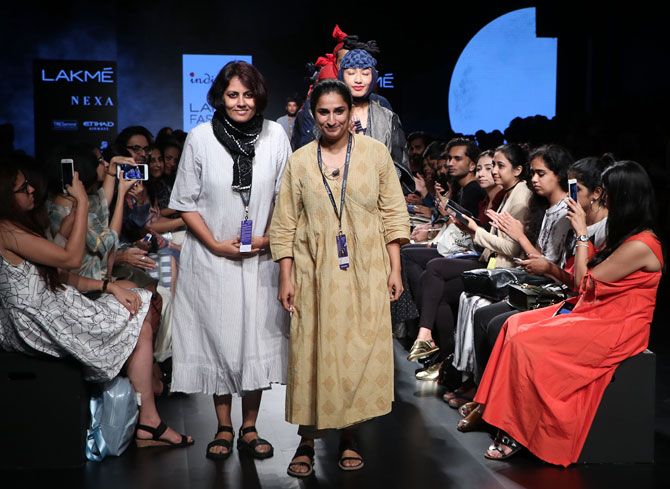
As always, designers Ruchi Tripathi and Jaya Bhatt remained true to their mission of sustainable fashion.
Children of War by Sayantan Sarkar
Photographs: Courtesy Lakme Fashion Week
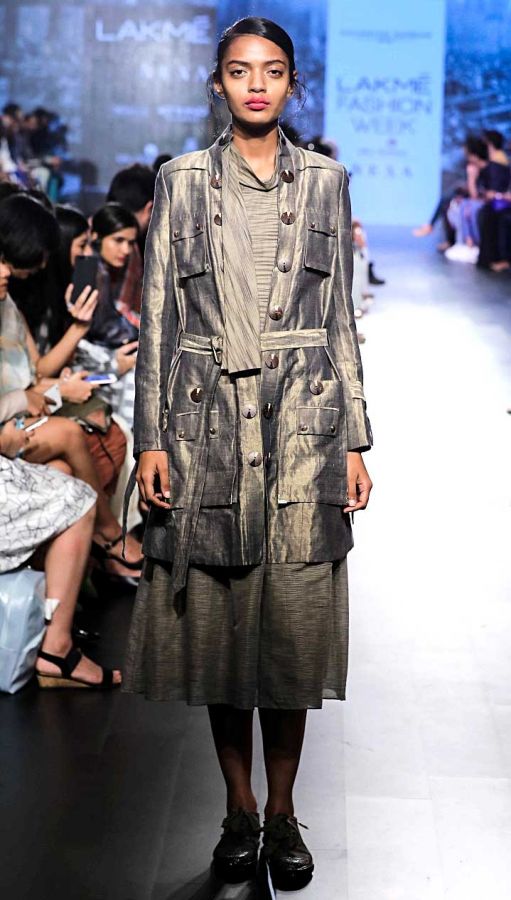
Sayantan Sarkar's news collection was inspired by Enyo, the Goddess of War in Greek Mythology, and aimed at strong men and women who value equality and enjoy winning.
LFW noted, 'Bringing in a mix of men's and women's wear, Sayantan offered fashionable contrasts when constructed jackets and flowing silhouettes merged seamlessly on the catwalk.'
LFW added, 'With unique fabric development being Sayantan's specialty, there were innovative blends of handlooms that featured Khadi/zari mélanges along with striking ikat checks.'
LFW noted, 'Bringing in a mix of men's and women's wear, Sayantan offered fashionable contrasts when constructed jackets and flowing silhouettes merged seamlessly on the catwalk.'
LFW added, 'With unique fabric development being Sayantan's specialty, there were innovative blends of handlooms that featured Khadi/zari mélanges along with striking ikat checks.'
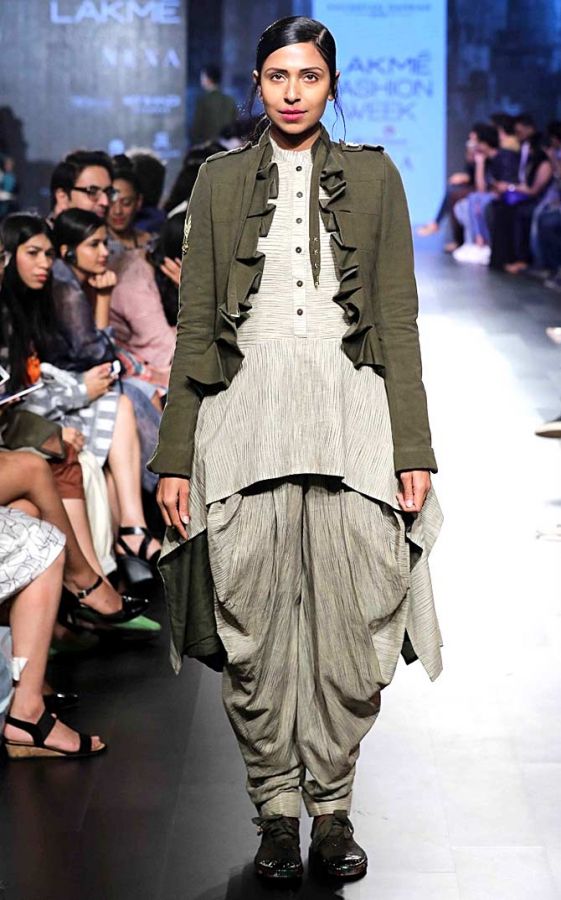
The women's wear had a marked androgynous touch with cropped militarised shirts, angular regimental jackets and knee length shirts with four patched pockets. Layered asymmetric skirts and sharply cut trousers complemented the look.
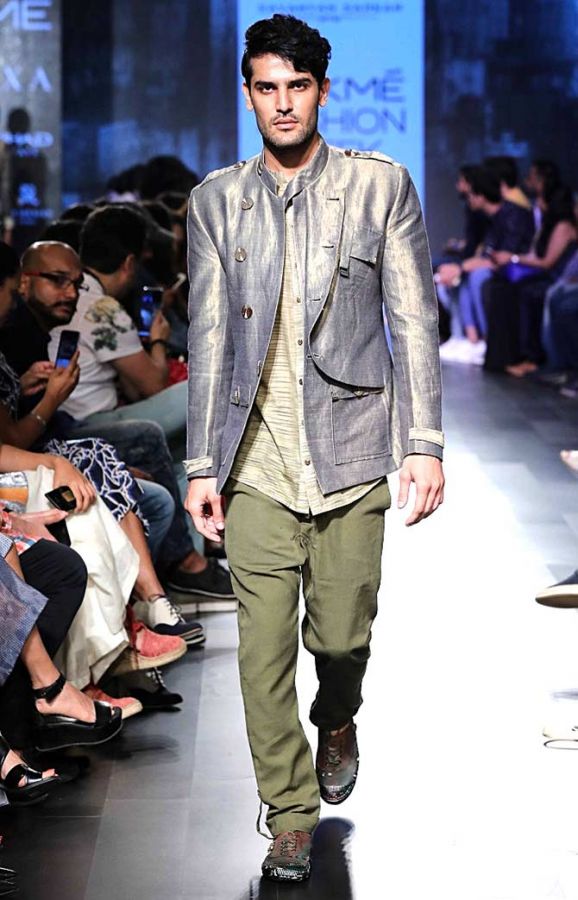
Men's wear was more martial and started with a multi-pocket boiler suit, some stylish double-breasted jackets sporting shoulder epaulets and jackets with four-pocket interest.











